Feature
Welcoming Children into Homes and Hearts
Lutheran foster families in Illinois and Wisconsin care for children during a difficult time in their lives.
“[Jesus said,] ‘Let the children come to Me; do not hinder them, for to such belongs the kingdom of God.’ … And He took them in His arms and blessed them, laying His hands on them.” (Mark 10:14–15)
Nicole Boeder first became interested in foster care when she was working as a counselor at Camp Wartburg in Waterloo, Ill. Two of the campers were siblings living in separate foster homes, so coming to camp was a rare opportunity for them to spend an entire week together.
“I remember being so sad when I heard about that [situation],” she said. “I decided that if I ever became a foster parent, I would do my best to keep siblings together.”
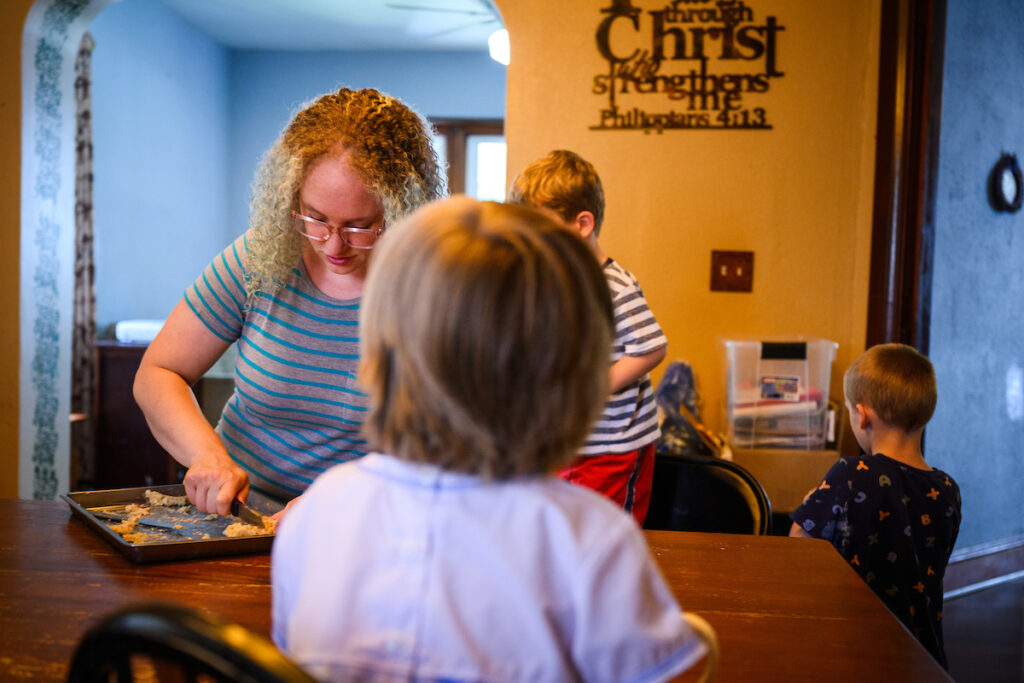
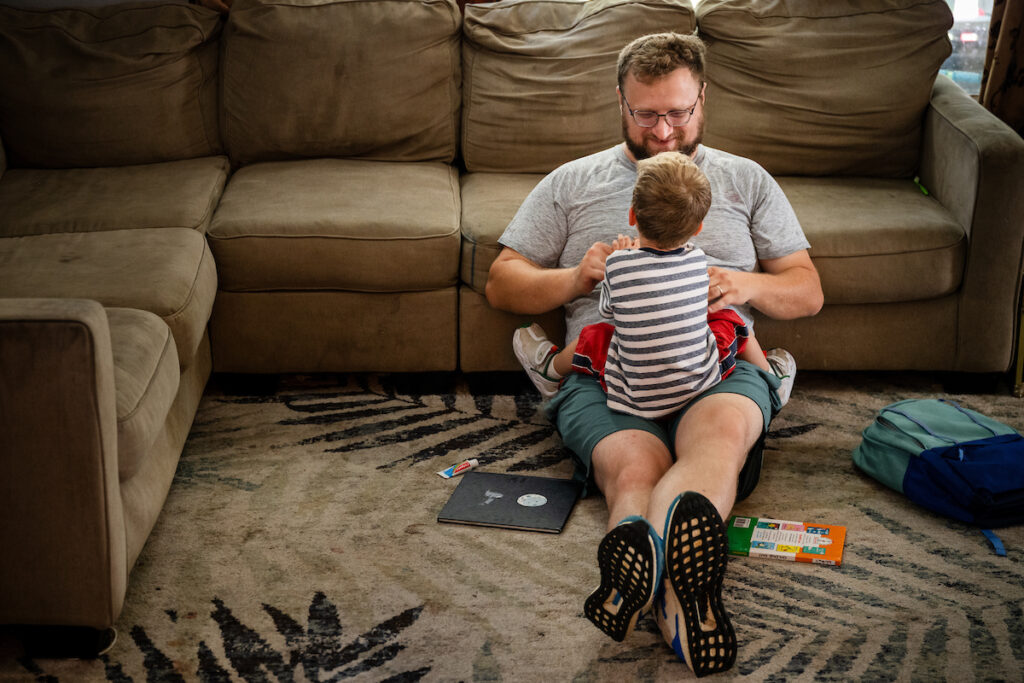
Now, she has done just that. On a sunny morning in June, she and husband Daniel watched from the front step of their Springfield, Ill., home as four children rode tricycles on the sidewalk. Two of them — ages 4 and 7 — are the Boeders’ biological children, while the other two — ages 3 and 4 — are brothers who came to them through the foster care system.
The Boeders provide shelter, food, clothing and love for all the children in their care. Most important, they tell the children about Jesus, who welcomed children during His time on earth.
A Challenging Calling
According to data from the U.S. Administration for Children and Families, there were 368,530 children in foster care in the United States at the end of 2022. Although that number has been decreasing for four consecutive years, it still reflects a lot of children, from infants to teenagers, who need love and support during a difficult time in their lives. There are many reasons children enter foster care, but common ones include neglect, parental drug use, physical abuse and housing instability.
There’s no doubt about it: Foster care can be challenging for both children and foster families. The system can be slow. The process to become licensed requires applications, references, interviews, background checks, classes, CPR certification and home inspections. Once a child is placed, the foster family has to be available for parental visits, which may occur multiple times per week and may fall through at the last minute.
It takes a heavy emotional toll as well, as a family welcomes a child into their home and hearts for an indeterminate amount of time. When Daniel was in medical school studying to become a child psychiatrist, a social worker actually advised him against fostering for this very reason.
But then Nicole was approached by a mother she had met in a local online moms group. The Illinois Department of Children and Family Services decided that the other mother could no longer care for her son, so she asked Nicole to take him in through a kinship foster. The Boeders had already taken the initial steps to become licensed foster parents, so the process moved along quickly. The next year, the mother had another son who later also needed a place to stay, so the Boeders welcomed him as well.
At one point, both boys went to live with their father. But that only lasted a few months before the boys came back again.
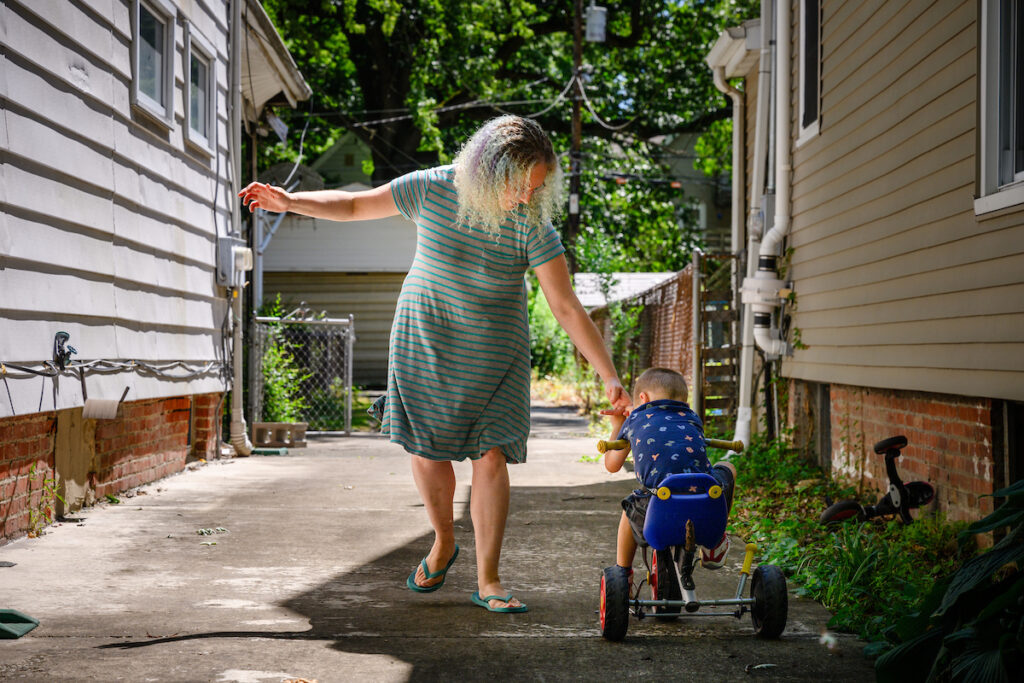
“They went back with their dad, and I thought, ‘OK, that’s the end of our story with them,’” Nicole recalled. “And then when things didn’t work out, I was crying because I really wanted it to work out. I wanted them to be able to be home with their dad. But at the same time, when they came back to us, it felt like family again.”
The boys have been with the Boeders for several years now. Daniel and Nicole expect to be able to adopt the two boys as soon as some final paperwork goes through, but that’s not usually the goal of foster care. In many cases, all those involved seek to reunite children with their biological parents.
Caring for Children, Cheering for Parents
The Boeders are just one of many Lutheran families around the country who care for children in the foster care system.
In Shorewood, Wis., the Rev. Michael and Kristina Larson have had four foster children in the last year and a half. All have been under 2 years old at the time they joined the family’s six other children, and each one has stayed for a different amount of time — from two months to a year. The Larsons’ most recent foster child was born prematurely and is currently in the NICU until he is well enough to be released into their care.
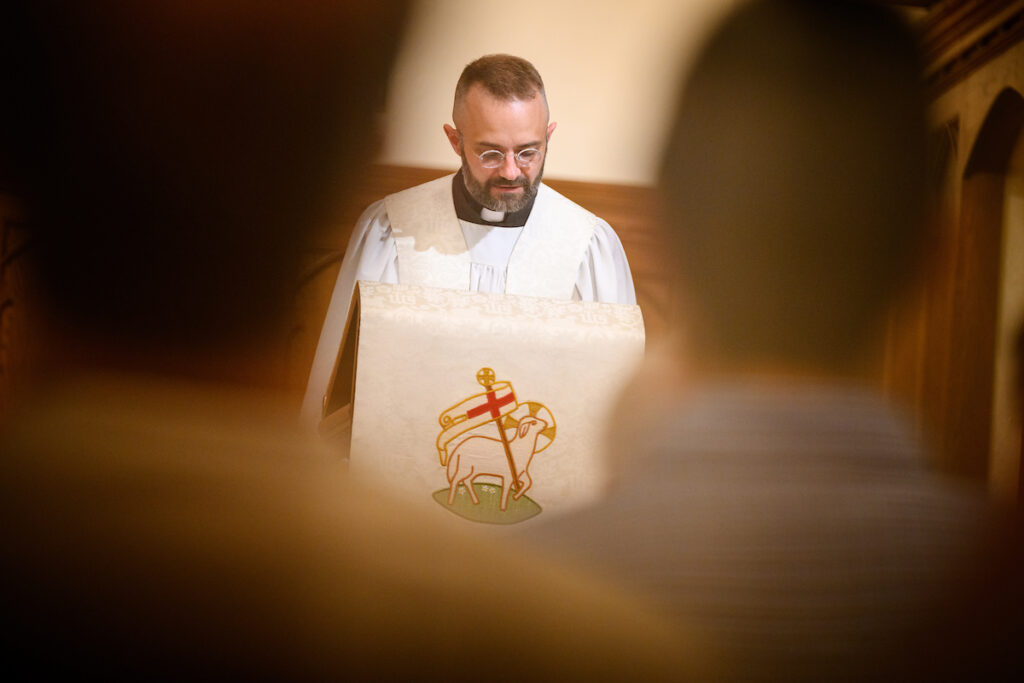
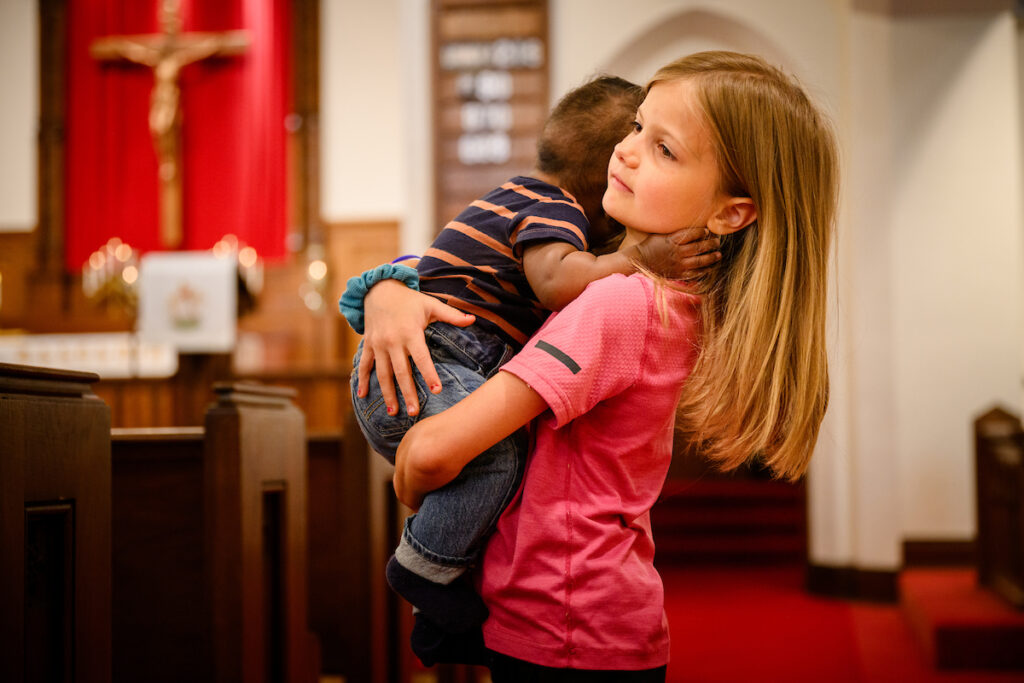
The Larsons have been surprised to see just how much support they receive, as a foster family, from various programs and nonprofit organizations. But of course, an offer to babysit or bring over a homemade meal is always welcome. Since Michael is in the pulpit on Sunday mornings, Kristina also appreciates when someone from the congregation offers to help with a child during the service.
Michael and Kristina have also been surprised by how excited and helpful their biological children have been throughout the process. “I’m really impressed and proud of how they welcome these children into our home,” Kristina said. “They continue to want to pray for them when they go home. [After we say goodbye,] I always ask, ‘How are you doing? Should we try this again?’ They always say, ‘Yes, let’s do it!’ Their enthusiasm motivates us.”
The Larsons also see fostering as an important way to be involved in the pro-life movement — both by caring for these children and cheering for their parents, but also by starting conversations with neighbors and case workers who notice something different about this family.
Michael notes that most of the case workers they’ve met do not have a Christian worldview, yet they sometimes comment on how most of the foster parents they work with are Christian. “It’s a big opening to talk about our motivation to care for these children … to talk about the self-giving, sacrificial love that God has for His children,” Michael said.
“Ultimately, our biological children are foster kids in that they are on loan to us from God,” Michael continued. “It’s not radically different with these foster kids, although their time with us may be shorter. We commend them back to God, trusting in His care.”
Learn More
- To support those serving in foster care and to raise awareness about the issue, the LCMS will release a series of helpful resources this fall. “These introductory resources will include a short theological explanation as to why adoption and fostering is a laudable effort for Christian couples, what could be expected of a couple considering fostering, and why the family’s local congregation is an integral part of the support network for children placed in foster care,” said Stephanie Neugebauer, manager of LCMS Health Ministry. Learn more at lcmslife.org/tags/foster-care.
- Make a gift to support the LCMS’ pro-life efforts.
Pray with Us
Father of the fatherless and protector of all who trust in You, be with all foster children and those who care for them, that the children might have loving homes in which they learn of Christ, their Savior, who makes them Your children by His blood; through the same Jesus Christ, our Lord. Amen.
Share Jesus with the World
Your generosity today makes possible your Synod’s witness and mercy efforts both at home and abroad.
Are you looking to direct your gifts for work that’s more specific?
Visit the LCMS online ministry and mission catalog to find those opportunities most meaningful to you!
Don’t see what you’re looking for?
Contact LCMS Mission Advancement at 888-930-4438 or mission.advancement@lcms.org to talk about all the options available.
Megan K. Mertz
Managing editor of Lutherans Engage the World and chief copy editor for LCMS Communications.

